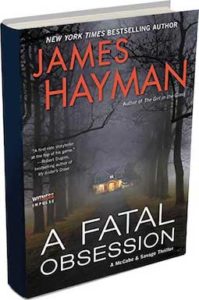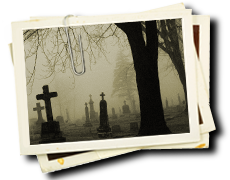Yes, a Thriller Has to Be Thrilling. But It Can Also be Literature
A lot of people, but especially self-proclaimed book snobs, create a kind of false distinction between thrillers (and other forms of so-called “genre” fiction such as romance and sci-fi) and what they like to call “literary fiction.”
Genre fiction, they say, is plot driven. Literary fiction is “character driven.”
That is a distinction that implies that in thrillers or in other kinds of genre fiction, the depth of the characters and the examination of their problems as human beings doesn’t matter.
I think that’s baloney.
Yes, a thriller has to be thrilling. A least a good one does. To qualify as a really good thriller a book has to have a plot that keeps you on the edge of your seat. It has to create a need in the reader to find out what happens next. A need that makes them unwilling to put the book down until they’ve turned just one more page, and then one more after that, even if it means staying up way past their intended bedtimes.
But is it only the unfolding of the plot that creates that kind of urgency and involvement in a story?
I don’t think so. I think it’s also the characters. The characters in really truly memorable thrillers have to be as interesting, as fully-developed and as multi-dimensional as they are in any so-called literary fiction.
I know in my own books, The Cutting and The Chill of Night, McCabe’s problems with his own past and the development of his relationships with his daughter Casey, his girlfriend Kyra, his partner Maggie and especially with his ex-wife Sandy are at least as important to the story as the unfolding of the plot or the undoing of the villains.
And it’s not just me. My bookcase is full of thrillers that, by any rational measure, qualify as first-rate literature.
Take Dennis Lehane’s Mystic River for example. It’s certainly a thriller with a plot that unfolds with all the awful inevitability of a Shakespearian tragedy. But Lehane went beyond plot and explored the character of his three protagonists, Jimmy Markum, Sean Devine, and Dave Boyle with subtlety, intelligence and great literary skill.
Or take John LeCarre’s classic The Spy Who Came in From the Cold or Richard Price’s 2008 best-seller, Lush Life. Are they thrillers or literature? I think they’re both. And then there’s Cormac McCarthy. He’s the winner of both the National Book Award and the National Book Critics Circle Award and is considered one of the finest “literary novelists” of our time. Yet he has written widely-acclaimed books, such as No Country For Old Men, that any fair-minded reader would call thrillers no matter how you cut it.
Yes, there are lots of thrillers populated with one-dimensional cardboard characters. And yes, there is much literary fiction that offers so little plot that its authors’ main intention seems to have been to induce sleep rather than prevent it. But, to me, those are the books that don’t work and won’t be remembered.
I think the best novels offer both great characters and great plot and arbitrarily categorizing them as either genre writing or literary fiction is a false and often dishonest choice. And one that needn’t be made.

